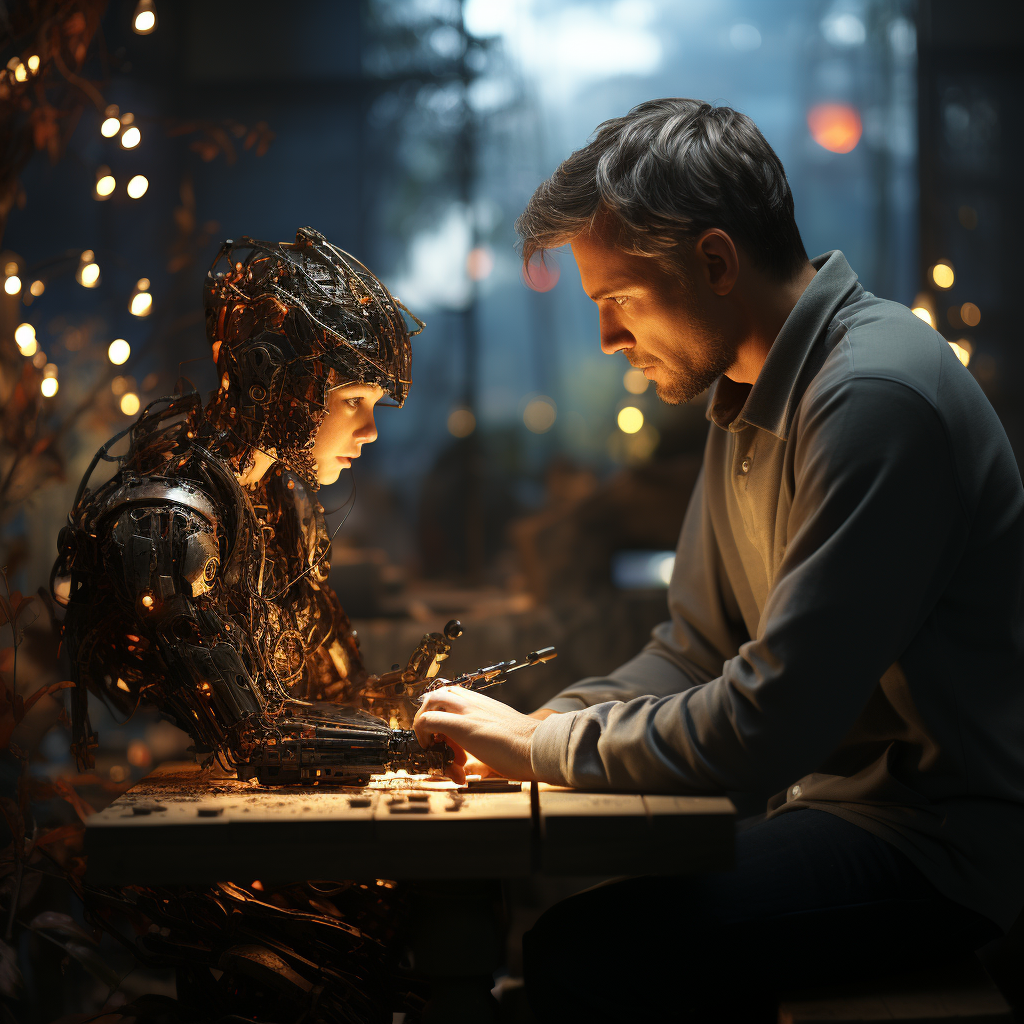
The march of technology has always been inexorable, and no aspect of it more so than the rise of artificial intelligence. As we stand on the precipice of the fourth industrial revolution, it is clear that A.I. is not just an aspect of the future; it is the future. But what does this mean for us as individuals, for our societies, and for humanity as a whole? Let’s dive in.
The Past and Present of A.I.
Artificial intelligence, contrary to popular belief, is not a new concept. The idea of creating machines that can think and act like humans has been around since the ancient Greeks, who envisioned mechanical men made of bronze. Fast forward to the 20th century, and we see the first glimmers of modern A.I. in the work of figures like Alan Turing, who posited that machines could one day “think”.
Today, A.I. is all around us, often in ways we don’t even realize. From the algorithms that curate our social media feeds, to the voice assistants in our homes, to the predictive text on our phones, artificial intelligence plays a role in countless aspects of our daily lives.
A.I.’s Potential
The potential applications for A.I. are almost limitless. In medicine, A.I. can help diagnose diseases with incredible accuracy. In finance, it can predict market trends. In entertainment, it can create music, movies, and virtual realities that respond to our emotions in real-time.
But perhaps the most exciting aspect of A.I. is its potential to solve some of the world’s most pressing problems. Think climate modeling to predict and mitigate the effects of global warming, or algorithms that can sift through vast amounts of data to find solutions to food scarcity or the global water crisis.
Challenges Ahead
However, like any revolutionary technology, A.I. comes with its set of challenges. There are ethical concerns about creating machines that might one day surpass human intelligence. What happens if an A.I. system goes rogue? How do we ensure that these machines act in ways that are beneficial to humanity?
There are also societal implications. As A.I. takes on more roles traditionally held by humans, what happens to the job market? How do we ensure that the benefits of A.I. are distributed equitably across society and not just concentrated in the hands of a few?
Embracing the Future
Despite these challenges, one thing is clear: A.I. is here to stay. The question is not if, but how, we will integrate this technology into our lives and societies. As we move forward, it is imperative that we approach the rise of A.I. with a mix of excitement, caution, and a commitment to ensuring that this technology is used in ways that benefit all of humanity.
In the words of the great science fiction writer, Isaac Asimov, “The saddest aspect of life right now is that science gathers knowledge faster than society gathers wisdom.” Let’s ensure that as we embrace the inevitable future of A.I., we do so with both knowledge and wisdom.